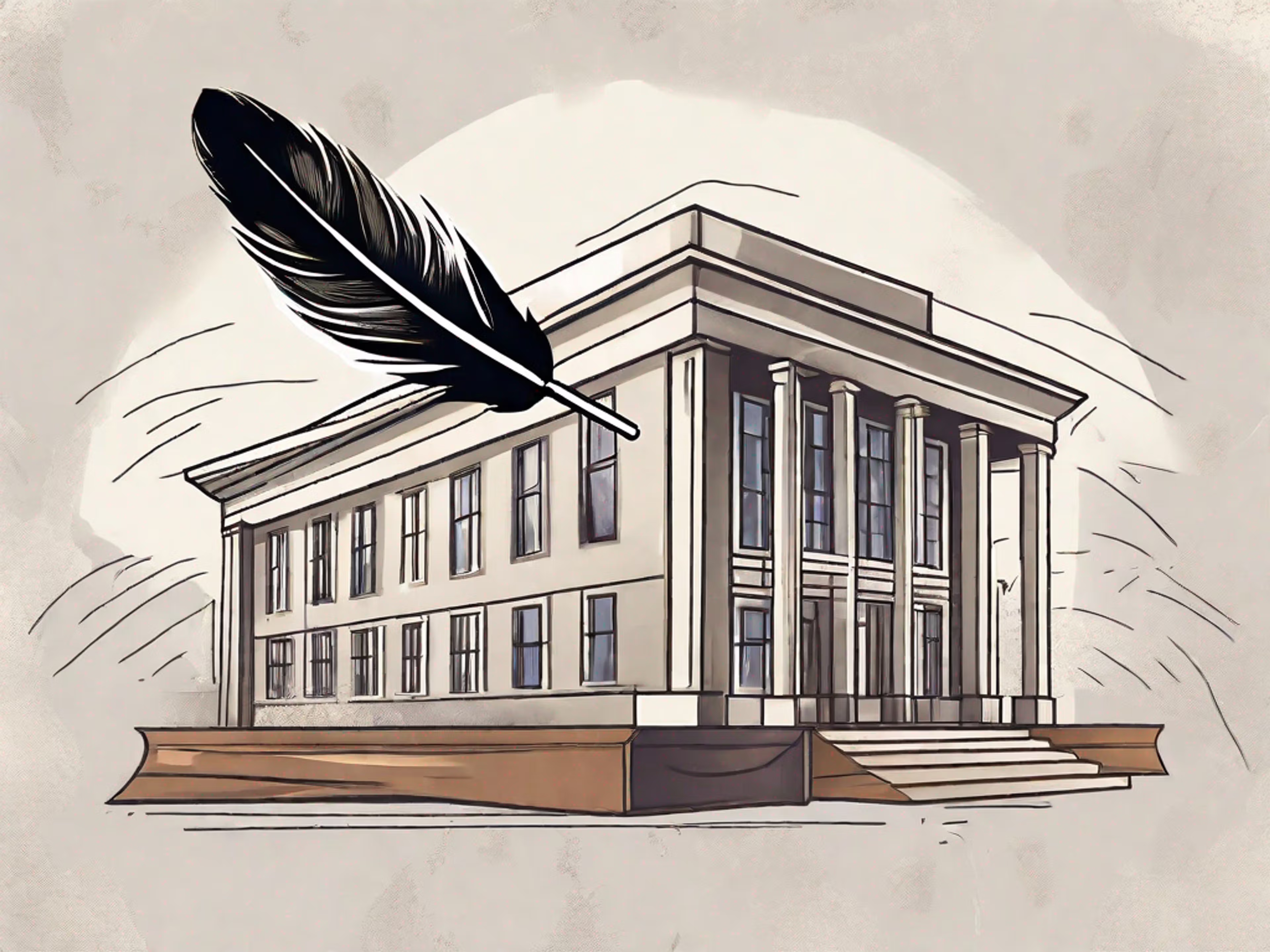Cornell Johnson MBA Letters of Recommendation Guide - Questions, Tips, & Examples
Our comprehensive guide provides essential questions, valuable tips, and real-world examples to help you navigate this crucial aspect of the admissions process with confidence and success.
Posted April 10, 2025

Table of Contents
Free Event

Featuring Melanie E.
How to Get a Head Start on Your MBA Application
Starting Wednesday, April 16
10:00 PM UTC · 60 minutes

Featuring Melanie E.
Cornell University's Samuel Curtis Johnson Graduate School of Management is highly regarded for its MBA program. As part of the application process, prospective students are required to submit letters of recommendation that provide insight into their personal and professional qualities. In this comprehensive guide, we will explore the role of letters of recommendation in the Cornell Johnson MBA application and provide helpful tips and examples to guide you in securing strong recommendations.
Brief Intro to Cornell Johnson and The Role of Letters of Recommendation
Established in 1946, the Cornell Johnson School of Business has been at the forefront of providing a rigorous and comprehensive MBA program that equips future business leaders with the skills and knowledge needed to excel in a rapidly changing global economy. With a commitment to fostering a diverse and collaborative community, Cornell Johnson seeks to attract individuals who not only possess exceptional academic credentials but also demonstrate a strong potential to contribute meaningfully to the Johnson community.
While the admissions committee carefully evaluates various components of an applicant's profile, such as their academic achievements, work experience, and personal statement, letters of recommendation play a crucial role in providing a deeper understanding of an applicant's potential to thrive in the Johnson MBA program.
Letters of recommendation serve as a valuable external perspective on an applicant's qualities, strengths, and suitability for the program. They offer unique insights that complement and corroborate the claims made by the applicant throughout their application, providing a sense of credibility and depth to their profile.
These letters, written by individuals who have had significant professional or academic interactions with the applicant, shed light on the applicant's character, leadership potential, and ability to work effectively in a team. They provide the admissions committee with a holistic view of the applicant's capabilities and help them assess whether the applicant aligns with the values and objectives of the Johnson community.
Furthermore, letters of recommendation offer an opportunity for the recommender to highlight specific examples of the applicant's accomplishments, contributions, and impact in their respective roles. Whether it be a supervisor, a professor, or a mentor, the recommender's firsthand experience and observations provide valuable anecdotes that bring the applicant's achievements to life.
Additionally, letters of recommendation can also address any potential weaknesses or areas of improvement in the applicant's profile. Recommenders may provide constructive feedback on areas such as the applicant's communication skills, ability to handle challenges, or their potential for growth. This allows the admissions committee to gain a comprehensive understanding of the applicant's strengths and areas where they may need additional support or development.
It is important for applicants to carefully select recommenders who can provide a well-rounded and insightful perspective on their abilities. Recommenders should be individuals who have had a meaningful and substantial professional or academic relationship with the applicant, as their opinions carry weight in the evaluation process.
In conclusion, letters of recommendation serve as a vital component of the Cornell Johnson MBA application process. They provide the admissions committee with a deeper understanding of an applicant's potential to contribute to the Johnson community and help assess their fit within the program's values and objectives. By offering external perspectives, highlighting achievements, and addressing areas of improvement, letters of recommendation add credibility and depth to an applicant's profile, ultimately aiding in the selection of individuals who will thrive in the Cornell Johnson MBA program.
Cornell Johnson Recommender Questions (2023-2024)
When guiding your recommenders, it is essential to provide them with a clear understanding of the questions they will be asked. The questions for the 2023-2024 admissions cycle are as follows:
- How long have you known the applicant and in what capacity?
- What do you consider the applicant's most significant strengths?
- What areas do you believe the applicant could improve upon or develop further?
- How does the applicant's interpersonal and leadership skills compare to their peers?
- How does the applicant respond to feedback or criticism?
By sharing these questions with your recommender, you can ensure they address the specific aspects the admissions committee is interested in.
When it comes to writing a recommendation letter for an MBA applicant, it is crucial to have a clear understanding of the questions that will be asked. The Cornell Johnson School of Business has provided a set of questions for the 2023-2024 admissions cycle, which will help guide recommenders in providing valuable insights about the applicant.
The first question asks about the duration and nature of the recommender's relationship with the applicant. This question aims to gauge the depth and breadth of the recommender's knowledge and experience with the applicant, providing the admissions committee with a better understanding of the context in which the applicant's strengths and weaknesses may have been observed.
The second question focuses on identifying the applicant's most significant strengths. This question allows the recommender to highlight the applicant's standout qualities, skills, or achievements that make them a strong candidate for the MBA program. It provides an opportunity for the recommender to showcase the applicant's unique abilities and attributes that set them apart from their peers.
On the other hand, the third question asks the recommender to identify areas where the applicant could improve or develop further. This question provides valuable insights into the applicant's areas of growth and potential, allowing the admissions committee to assess the applicant's self-awareness and willingness to learn and develop. It also helps the committee understand how the applicant's weaknesses may impact their performance in the MBA program.
The fourth question delves into the applicant's interpersonal and leadership skills, comparing them to their peers. This question aims to assess the applicant's ability to work effectively with others, lead teams, and collaborate in a professional setting. It provides the recommender with an opportunity to evaluate the applicant's interpersonal dynamics and leadership potential, which are crucial qualities for success in the business world.
Lastly, the fifth question explores how the applicant responds to feedback or criticism. This question allows the recommender to provide insights into the applicant's ability to accept and learn from feedback, adapt to new situations, and demonstrate resilience in the face of challenges. It provides the admissions committee with a glimpse into the applicant's growth mindset and their capacity for personal and professional development.
By sharing these specific questions with your recommender, you can ensure that they address the key aspects of the applicant's profile that the Cornell Johnson School of Business is interested in. This will enable the recommender to provide a comprehensive and insightful recommendation letter that highlights the applicant's strengths, areas for improvement, and overall fit for the MBA program.
Expert Tips for Powerful Cornell Johnson Recommendation Letters
Writing a persuasive recommendation letter requires thoughtfulness and intentionality. Here are some expert tips to help you craft a powerful letter:
- Provide specific examples: Illustrate your points with concrete examples that highlight the applicant's abilities and achievements.
- Showcase relevant skills: Focus on the qualities and skills that align with the Johnson MBA program's core values and curriculum.
- Highlight leadership potential: Emphasize the applicant's leadership abilities and their potential to make a positive impact in their chosen field.
- Focus on growth and development: Discuss instances where the applicant demonstrated a willingness to learn, adapt, and grow both personally and professionally.
- Be honest and authentic: Provide a balanced assessment of the applicant's strengths and areas for improvement, always maintaining honesty and integrity.
By following these tips, you can create a recommendation letter that stands out and accurately portrays the applicant's qualifications and potential.
Example Johnson Letters of Recommendation From Successful Admits
Observing real-life examples of successful recommendation letters can provide valuable insights into the qualities that the admissions committee appreciates. Here are two excerpts from successful Johnson letters of recommendation:
Example 1:
"I have had the pleasure of working closely with [Applicant's Name] for the past three years at [Company/Organization]. Throughout our collaboration, they have consistently demonstrated exceptional analytical abilities and innovative problem-solving skills. One notable instance was when [provide specific example]. Their strong work ethic, coupled with their ability to effectively communicate complex ideas, has enabled them to lead high-performing teams."
Example 2:
"As [Applicant's Name]'s supervisor during their time at [Company/Organization], I have been thoroughly impressed with their exceptional leadership qualities. They possess a remarkable ability to motivate and inspire their team members, leading to significant improvements in productivity, collaboration, and overall morale. Moreover, their strategic thinking and well-rounded skill set have consistently resulted in successful project outcomes."
These examples showcase the importance of highlighting specific achievements and strengths while providing context on the applicant's contributions in a professional setting.
Cornell Johnson Letters of Recommendation FAQs
As you navigate the recommendation letter process, you may have questions. Here, we address some frequently asked questions:
- Can I submit more than two recommendation letters?
No. Cornell Johnson requires applicants to submit exactly two recommendation letters.
- Should my recommender be from my current workplace?
While a current supervisor is an obvious choice, your recommender should be someone who knows you well and can provide detailed insights into your abilities.
- Should I draft the recommendation letter for my recommender?
No. The recommendation letter should be written by your recommender in their own words to ensure authenticity.
Remember, when it comes to letters of recommendation for the Cornell Johnson MBA program, authentic and insightful recommendations can significantly enhance your application.
By understanding the role of recommendation letters, providing clear guidance to your recommenders, and crafting compelling and honest letters, you can maximize your chances of securing that coveted spot at Cornell Johnson's prestigious MBA program. Good luck!


















